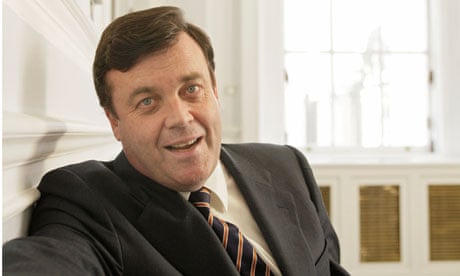Brian Lenihan, who has died aged 52 of pancreatic cancer, sought to save Ireland from fiscal collapse while engaged in a personal struggle for survival. As the republic's finance minister during the deepening economic crisis of last autumn and winter, he had to go cap in hand to the IMF and the EU for the €85bn rescue package that has since kept the nation afloat.
He rose to the second-highest post in the Irish government in June 2008, when the nation's banks were on the brink of failure due to a lending spree during the Celtic Tiger boom. Just four months later, Lenihan was forced to pump billions of Irish taxpayers' euros into a banking system that most citizens had blamed for bringing the country to the precipice. Although the bailout prevented a run on the banks, Lenihan's move proved to be a hugely unpopular decision and marked the beginning of the end for his Fianna Fáil party – for now at least – as a major force in Irish politics. His initial description of the bank rescue package as "the cheapest bailout in history" would come back to haunt him and Fianna Fáil.
Between the bailout and the international financial rescue plan at the end of 2010, Lenihan was forced to introduce a series of austerity budgets that slashed Ireland's minimum wage and reduced welfare payments. These measures were perceived as grossly unfair, given that the bankers who were accused of fuelling an unsustainable boom appeared to have escaped without any sanction. As a result, the party to which Lenihan had been inextricably linked since childhood sustained a hammering in the 2011 general election.
Despite his trials, Lenihan remained an affable and warm character, both on television and on the hustings. It was a measure of the durability of the Lenihan political dynasty that he retained his Dublin West seat in the election – the only Fianna Fáil seat left in the capital – while the party lost 50 seats overall.
Lenihan had Fianna Fáil – to borrow a phrase from Seamus Heaney – "watermarked into his existence". He was born in Dublin into a family with deep ties to the "Soldiers of Destiny", as the party's name is often rendered into English. His father, Brian, had been a cabinet minister for more than 25 years, holding among other positions the defence portfolio and that of tánaiste, or deputy prime minister. His aunt, Mary O'Rourke, was also a veteran Fianna Fáil member and cabinet minister, as was his brother Conor. Both aunt and brother lost their seats in the February election. His grandfather, Patrick Lenihan, had served as a Fianna Fáil deputy from 1965 to 1970.
Brian junior studied law, first at Trinity College Dublin and later at Cambridge University, before becoming a barrister. Although he could have had a glittering career at the Dublin bar, he followed the familial call into Fianna Fáil and entered politics. Like many emerging Irish politicians, he used his debating skills as a lawyer effectively on the airwaves.
Lenihan entered the Dáil Éireann in 1996 after his father's death sparked a byelection in the West Dublin constituency. He continued on the same path by holding three cabinet positions – children's minister from 2002, justice from 2007 and finance from 2008, after Brian Cowen left that post to succeed Bertie Ahern as taoiseach. When Cowen stood down as party leader last January, Lenihan lost the ensuing election to the foreign minister, Micheál Martin. All three continued in their government roles until Fianna Fáil's exit from office, following which Lenihan became the party's deputy leader.
Although he was often a target for opposition parties deeply critical of his decision to virtually nationalise six banks in 2008, the way Lenihan conducted himself at the end of his life won admirers across the floor of the Dáil. Referring to his public announcement of his illness after diagnosis in late 2009, the current Irish premier and Lenihan's long-time political rival Enda Kenny of Fine Gael spoke of his "wonderful courage" while "carrying out his public duties in the most challenging economic circumstances".
Lenihan relayed his own sense of the pervading crisis in a recent BBC interview: "I've a very vivid memory of going to Brussels on the final Monday to sign the agreement and being on my own at the airport and looking at the snow gradually thawing and thinking to myself, this is terrible. No Irish minister has ever had to do this before."
He is survived by his wife, Patricia, whom he married in 1997; his children, Tom and Claire; his mother, Anna; his sister, Anita; and his brothers, Conor, Niall and Paul.
